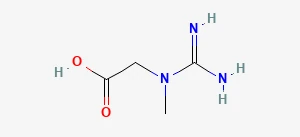
Creatine stands as a powerhouse supplement in the world of fitness and health, offering a myriad of benefits that extend far beyond its well-known reputation for enhancing athletic performance. This remarkable compound, naturally produced in our bodies and found in certain foods, has captivated the attention of athletes, fitness enthusiasts, and health-conscious individuals alike for its ability to transform physical capabilities and support overall well-being.
At its core, creatine plays a crucial role in energy production within our muscle cells. By increasing the availability of adenosine triphosphate (ATP), the primary energy currency of cells, creatine empowers individuals to push their physical limits during high-intensity, short-duration activities. This enhanced energy production translates into tangible improvements in various aspects of performance, including increased strength, power output, and sprint speed. For athletes and fitness enthusiasts, this means the ability to lift heavier weights, jump higher, and sprint faster, ultimately leading to more effective training sessions and improved competitive performance.
The benefits of creatine extend beyond acute performance enhancements. Regular supplementation, combined with consistent resistance training, has been shown to accelerate muscle growth and increase lean body mass. This is particularly exciting for those looking to build strength and improve their physique. The mechanism behind this muscle-building effect is multifaceted, involving increased water retention in muscle cells, enhanced protein synthesis, and potentially reduced protein breakdown. These combined effects create an optimal environment for muscle growth and recovery, allowing individuals to make faster progress towards their fitness goals.
Recovery is another area where creatine shines. By potentially reducing muscle damage and inflammation following intense exercise, creatine supplementation may help athletes and fitness enthusiasts bounce back faster between workouts. This improved recovery can lead to more consistent training, reduced downtime due to soreness, and ultimately, better long-term progress. For those engaged in rigorous training regimens or competitive sports, this aspect of creatine’s benefits can be a game-changer, allowing for more frequent high-quality training sessions and potentially reducing the risk of overtraining.
While often associated with strength and power sports, creatine’s benefits are not limited to these domains. Emerging research suggests potential advantages for endurance athletes as well. By improving high-intensity capabilities, creatine may enhance interval training performance and sprint finishes in endurance events. Additionally, its potential to increase muscle glycogen storage could provide endurance athletes with an extra energy reserve during prolonged activities.
The positive effects of creatine extend beyond physical performance, venturing into the realm of cognitive function and brain health. Some studies have indicated that creatine supplementation may enhance cognitive performance, particularly in tasks requiring quick thinking and mental fatigue resistance. This cognitive boost could be particularly beneficial for athletes in sports that demand high levels of mental acuity and decision-making under pressure. Moreover, the potential neuroprotective properties of creatine are an exciting area of ongoing research, suggesting possible benefits for brain health as we age.
One of the most compelling aspects of creatine is its safety profile. Extensive research has consistently shown that creatine supplementation, when used as directed, is safe for healthy individuals across various age groups. This safety, combined with its effectiveness, has made creatine one of the most studied and recommended supplements in the sports nutrition field. The absence of significant side effects and its natural presence in the body further contribute to its appeal as a supplement choice for those looking to enhance their fitness and health naturally.
For individuals following specific dietary patterns, such as vegetarian or vegan diets, creatine supplementation can be particularly beneficial. Since creatine is primarily found in animal products, those abstaining from these foods may have lower baseline creatine levels. Supplementation can help ensure optimal creatine stores, potentially leading to more pronounced benefits in performance and recovery for these individuals.
As we look to the future, the potential applications of creatine continue to expand. Research is exploring its role in managing various health conditions, from neurodegenerative diseases to metabolic disorders. While more studies are needed, the preliminary findings are promising and highlight the versatility of this remarkable compound.
In conclusion, creatine stands as a testament to the power of targeted supplementation in enhancing human performance and health. Its ability to boost energy production, accelerate muscle growth, enhance recovery, and potentially support cognitive function makes it a valuable tool in the arsenal of anyone looking to optimize their physical and mental capabilities. As research continues to uncover new benefits and applications, creatine’s position as a cornerstone supplement in the world of fitness and health is likely to strengthen further. For those seeking to push their boundaries, achieve their fitness goals, and support their overall well-being, creatine offers a safe, effective, and well-researched option to complement a healthy lifestyle and training regimen.
Need your own dietary supplement manufacturer? Extremely competitive rates. We produce it all. Talk to us.
Comments are closed